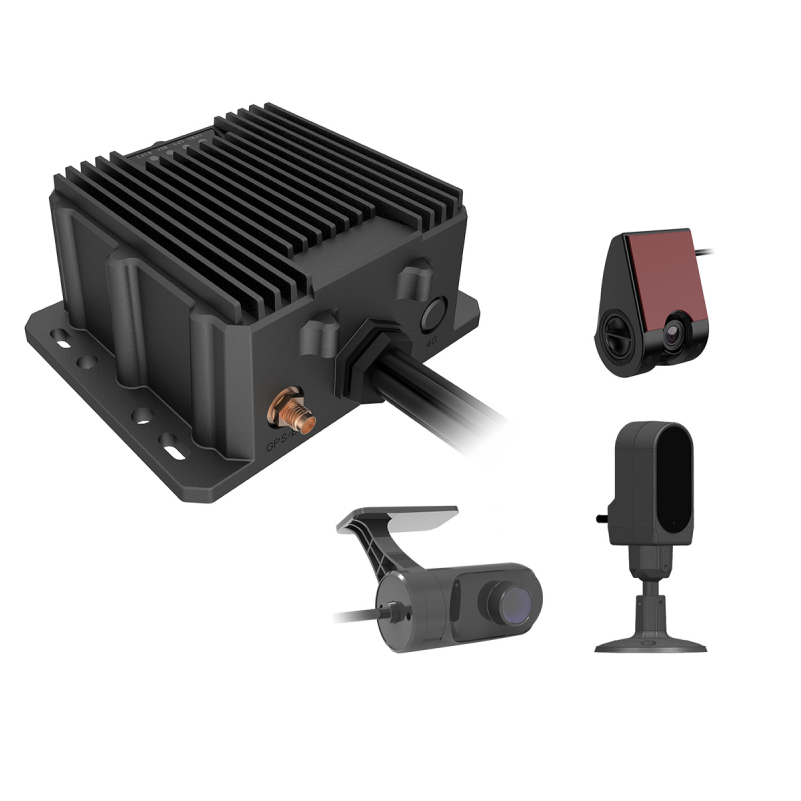Fleet management is a multifaceted discipline that revolves around the efficient and effective oversight of an organization’s vehicle fleet. It involves a series of processes and strategies aimed at optimizing the entire lifecycle of the vehicles, from acquisition to disposal. This includes not only the physical management of the vehicles but also the management of associated assets and human resources, such as fleet drivers. It is an essential part of enterprise asset management, ensuring that the fleet operates smoothly, complies with regulations, and contributes to the overall success of the business.
The Core Components of Fleet Management
To truly understand fleet management, it is essential to delve into its core components. These elements work in tandem to create a seamless and efficient operation.
- Vehicle Acquisition and Disposal: Fleet managers are responsible for determining the right time to acquire new vehicles based on the organization’s needs. They consider factors like the growth of the business, the replacement of aging vehicles, and the specific requirements of different operations. When it’s time to dispose of a vehicle, they manage the process to ensure maximum value recovery.
- Maintenance and Repairs: Preventative maintenance is a key aspect. By scheduling regular servicing, monitoring vehicle health through advanced technologies like telematics, and addressing issues promptly, fleet managers can avoid costly breakdowns. This also helps in extending the lifespan of the vehicles, reducing the overall cost of ownership.
- Driver Management: Recruiting qualified drivers, providing them with proper training, and monitoring their performance and behavior are crucial. Safe driving practices not only protect the drivers but also contribute to fuel efficiency and the overall reputation of the organization. Fleet managers also work on retaining good drivers to maintain a stable and efficient workforce.
- Fuel and Route Optimization: With fuel being a significant expense, fleet management focuses on optimizing fuel consumption. This can be achieved through route planning using GPS and telematics data, reducing idle time, and promoting fuel-efficient driving habits. Efficient routes also lead to increased productivity as vehicles spend less time on the road and can serve more customers in a shorter period.

The Benefits of Fleet Management
The advantages of implementing effective fleet management practices are numerous and far-reaching.
- Cost Reduction: By optimizing fuel usage, reducing maintenance costs through proactive measures, and making informed decisions about vehicle acquisition and disposal, fleet management can lead to significant cost savings. For example, GPS vehicle tracking can help identify inefficient routes and reduce fuel costs by up to 25%.
- Increased Productivity: Telematics solutions enable better asset tracking, allowing fleet managers to know exactly when a vehicle needs maintenance and ensuring it is available when needed. This reduces downtime and improves the overall efficiency of the fleet. Additionally, optimized routes and reduced idle time mean that drivers can complete more tasks in a day.
- Enhanced Customer Service: Customers expect timely deliveries and accurate service. Fleet management, with its focus on route optimization and real-time vehicle tracking, can provide accurate estimated times of arrival (ETAs). This leads to greater customer satisfaction and loyalty.
- Regulatory Compliance: Fleet managers must ensure that all vehicles and drivers comply with various regulations, such as hours of service (HOS) and vehicle inspection requirements. Non-compliance can result in hefty fines and damage to the organization’s reputation.
The Role of Technology in Fleet Management
Technology has become an inseparable part of modern fleet management, revolutionizing the way operations are conducted.
- Fleet Management Software: This serves as the central hub for all fleet-related data. It allows fleet managers to track vehicle locations in real-time, manage driver records, analyze fuel consumption, and schedule maintenance. The software can also generate reports and provide insights for making data-driven decisions.
- GPS and Telematics: GPS enables accurate vehicle tracking, while telematics provides additional data like engine performance, speed, and idle time. This data is invaluable for optimizing routes, predicting maintenance needs, and monitoring driver behavior.
- Fuel Monitoring Systems: These systems track fuel usage, detect fuel theft or wastage, and help in implementing fuel-efficient strategies.
Future Trends in Fleet Management
As the world of technology continues to evolve, so does fleet management. New trends are emerging that will shape the future of this industry.
- 5G Network Connectivity: The introduction of 5G will revolutionize fleet management by providing faster data transfer, enabling real-time communication between vehicles and the management system. This will enhance the accuracy and speed of decision-making.
- Autonomous Vehicles: Although still in the early stages, autonomous vehicles have the potential to improve safety and efficiency. They can be integrated into fleet operations, especially for repetitive and long-haul tasks.
- Mobility-as-a-Service (MaaS): This trend offers new opportunities for fleet management, allowing for more flexible and cost-effective transportation solutions. It combines various modes of transport and can be integrated with existing fleet operations.
- Telematics Advancements: With the development of artificial intelligence and machine learning, telematics will become even more powerful. It will be able to predict maintenance needs more accurately, provide more detailed driver behavior analysis, and offer better route optimization.

Conclusion
Fleet management is a complex and dynamic field that is continuously evolving. By understanding its key components, benefits, and the role of technology, organizations can implement effective fleet management strategies.
HBOIOT offers cutting-edge fleet management solutions that combine advanced technology, reliable service, and in-depth industry expertise. Our state-of-the-art systems enable seamless vehicle tracking, efficient fuel management, and enhanced driver safety. With HBOIOT, you can unlock the full potential of your fleet, reduce operational costs, and boost overall productivity. Don’t miss out on the opportunity to transform your fleet management experience.
